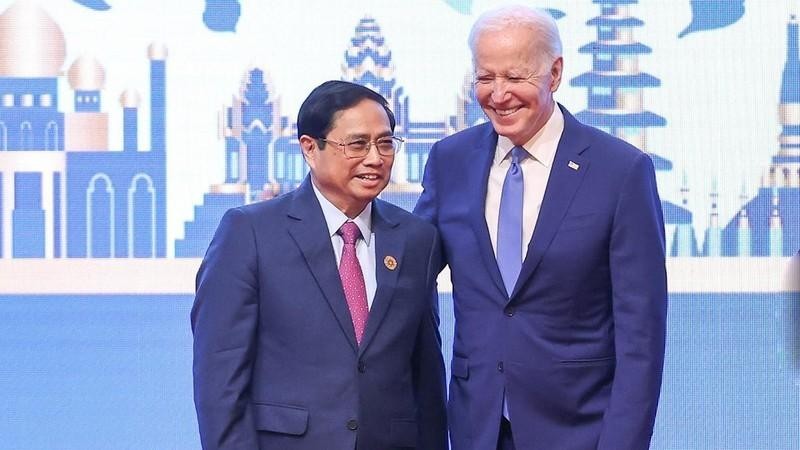Editor's note:The author of this article is Dr. Stephen R Nagy, senior associate professor at the Department of Politics and International Studies under International Christian University in Tokyo, Japan.
ASEAN-U.S. relations continue to deepen despite the challenges for the bloc in balancing its relationship with the United States and China. Repeatedly, ASEAN leaders have said that they do not want to choose between China and the United States.
They continue to stress they would like to have a constructive, mutually beneficial, and stable relationship with each partner. The deepening U.S.-China strategic rivalry is making this increasingly difficult.
The United States needs to recognize ASEAN’s geographic proximity to China and the important economic ties it has with the Chinese economy means that without strong economic engagement with China, its development will be slower, weaker, and less comprehensive.
At the same time, ASEAN values and recognizes the importance of its relationship with the United States. The United States is a large investor in ASEAN and it has an important diplomatic footprint in the region that inculcates stability in there and provides comprehensive engagement that includes economic, diplomatic, and security involvement that brings stability to the region.
The United States could enhance its position with ASEAN leaders by recognizing ASEAN priorities such as development, infrastructure and connectivity, peace and stability, and the desire not to choose between the United States and China.
Here the United States can enhance its partnership with ASEAN through partnering with countries like Japan, Australia, South Korea, and others to provide public goods to the region, while at the same time recognizing ASEAN centrality as key to the region's future integration and sustainable development.
Instruments of public good provision could include the Quadrilateral Security Dialogue (QUAD), supply chain resilience schemes, inclusive development initiatives, and importantly a trade agreement that would anchor the U.S. into the region through shared trade priorities.
A focus on and expansion of health infrastructure such as the new CDC Southeast Asia Regional Office in Vietnam opened by Vice President Kamala Harris in August 2021, an illustrative example of what the U.S. can do to contribute to the region.
This could be enhanced and allay concerns of ASEAN members about choosing between the U.S. and China if this office was open to Chinese health officials as well.
For ASEAN, any investment in non-traditional security issues in Southeast Asia such as anti-piracy, illegal fishing, climate change, humanitarian assistance and disaster relief, and search and rescue would be positive initiatives to invigorate bilateral relations and also provide opportunities for China to work with, not in competition with, the U.S. on issues that benefit Southeast Asia.
It is important to recognize that ASEAN builds relationships with countries based on the realities of the heterogeneity of ASEAN members and their focus on improving levels of governance, enhancing development, and cooperation.
This does not mean that human rights or democracy is unimportant but it does recognize that states see their priorities through the lens of development, improving governance and maintaining strategic autonomy as they deal with the challenges of the U.S. - China strategic rivalry.
ASEAN has an important role in bringing the region together but it needs to also play a more proactive, cohesive role in contributing to building a rules-based order in the Indo-Pacific.
The ASEAN Indo-Pacific outlook is a good start but it still needs to be more focused on articulating the importance of building institutions that focus on good governance, transparent, and mutually agreeable rules that ensure that dialogue and rules are the basis for how problems are resolved in the Indo-Pacific, not a might is right Machiavellian approach to foreign affairs.
To carve out a role for ASEAN and to invigorate the ASEAN-U.S. relationship, it isn’t enough to just advocate for the ASEAN way or ASEAN centrality. ASEAN needs to bring to the table concrete and achievable initiatives that are meaningful and sustainable for the U.S. and other partners.
Here, championing good governance in the region, opening up more educational and research exchange opportunities throughout the region, fostering the conditions for deeper intra-ASEAN integration to enhance strategic autonomy are critical to building deeper and broader ties with the U.S. and other stakeholders including Japan, South Korea, the EU, Canada, and Australia.
In short, invigorating ASEAN-U.S. relations requires more mutual understanding and proactive reciprocity in contributing to deepening ties.


















































